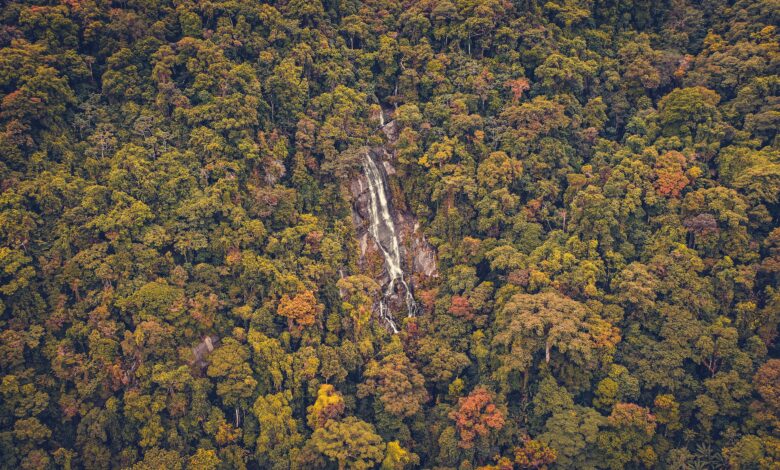Harnessing the Power of Eco-Tourism: A Crucial Role in Climate Action

The pivotal role of eco-tourism in combatting climate change by reducing emissions, promoting renewable energy, responsible waste management, supporting communities, and conserving natural habitats.
Eco-tourism emerged as an increasingly popular movement blending wanderlust with a commitment to environmental preservation. With a rising number of travelers opting for sustainable and eco-conscious journeys, the significance of eco-tourism in addressing and adjusting to the impacts of climate change remains undeniable.
For those eager to contribute meaningfully while exploring, delve into the ways eco-tourism actively contributes to a positive transformation in our world.
How Does Eco Tourism Help Climate Change?
Reducing greenhouse gas emissions through sustainable travel
Within the realm of tourism, embracing sustainable transportation methods and eco-conscious lodging stands out as a highly effective means to diminish emissions.
Eco-tourism boasts a diverse array of options, encompassing electric vehicles, public transit alternatives, and energy-efficient accommodations like eco-friendly hotels and lodges. These choices present ample opportunities to shrink our carbon footprint while embarking on global adventures.
Promoting renewable energy and energy efficiency in eco-friendly tourist sites
Advancing renewable energy and enhancing energy efficiency represents another avenue through which eco-tourism combats climate change. Vital to this cause are eco-conscious tourist destinations like hotels, lodges, and tour operators that actively invest in and implement renewable energy sources and energy-efficient technologies.
These tourism establishments prioritize the integration of solar panels, wind turbines, LED lighting, and water-conserving fixtures like low-flow showers. By embracing these technologies, such businesses significantly diminish their carbon footprint.
Opting for eco-friendly tourist sites that emphasize renewable energy and energy efficiency empowers travelers to directly support a cleaner, greener, and more sustainable global environment.
Encouraging responsible waste management and reducing waste through eco-tourism practices
The third significant contribution of eco-tourism in addressing climate change lies in prioritizing responsible waste management and waste reduction. Through the adoption of eco-conscious practices and technologies, the tourism sector can notably decrease its waste generation while fostering sustainability.
Eco-friendly tourist destinations actively engage in various initiatives, ranging from composting and recycling programs to the integration of reusable products and initiatives aimed at minimizing single-use plastics. These efforts showcase the active role these sites play in waste reduction and promoting responsible waste management practices. Often, this aspect forms a substantial criterion for certification by third-party organizations recognizing and accrediting sustainable endeavors.
Adapting to the Effects of Climate Change through Eco-Tourism
Community Empowerment and Socioeconomic Development
Assisting communities affected by the repercussions of climate change stands as a pivotal facet of eco-tourism, contributing to both alleviating and adjusting to the consequences of an evolving climate.
Be it through sustainable development endeavors, community-driven tourism projects, or the encouragement of purchasing locally crafted goods, eco-conscious tourist destinations assume a crucial responsibility in aiding communities especially susceptible to climate change impacts.
These endeavors not only serve to diminish the effects of climate change but also yield economic advantages for local communities, fostering resilience in confronting a swiftly changing climate scenario.
Preservation of Natural Habitats and Wildlife

Eco-tourism places significant emphasis on initiatives for wildlife conservation, habitat protection programs, and the promotion of responsible wildlife observation practices. Visiting these destinations extends support to their crucial role in safeguarding global biodiversity and advocating for environmental preservation.
Moreover, these sites offer exceptional and educational chances for travelers to connect intimately with the natural world — an aspect that frequently leads to the most memorable and impactful travel experiences.
Education and Awareness
An integral aspect of eco-tourism is its potential to educate travelers about environmental conservation and sustainability. Numerous educational tourism experiences facilitate this learning process, including guided nature walks, wildlife observation excursions, and community-focused tourism initiatives.
These immersive experiences not only elevate awareness concerning the significance of climate action but also foster a profound connection between travelers and the natural world. They instill a heightened appreciation for individuals’ roles in advocating sustainability.
Conclusion
The Glasgow Declaration serves as a driving force, intensifying the imperative to expedite climate action within the tourism sector. It aligns with global objectives aiming to reduce emissions by fifty percent within the coming decade and achieve Net Zero emissions well before 2050. This formal declaration was unveiled during the UN Climate Change Conference (COP26) held in November 2021.
As you plan your next journey, contemplate selecting an eco-friendly travel choice that champions sustainability, conservation efforts, and community development. Collectively, our choices have the power to effect positive change in combatting climate change.
With its pioneering climate action platform, The Disposal Company is leading the charge towards a sustainable future in India, enabling brands to go plastic-neutral and carbon-neutral with ease. Discover more here.
You might also like:
How to Travel Responsibly and Reduce Your Environmental Impact




